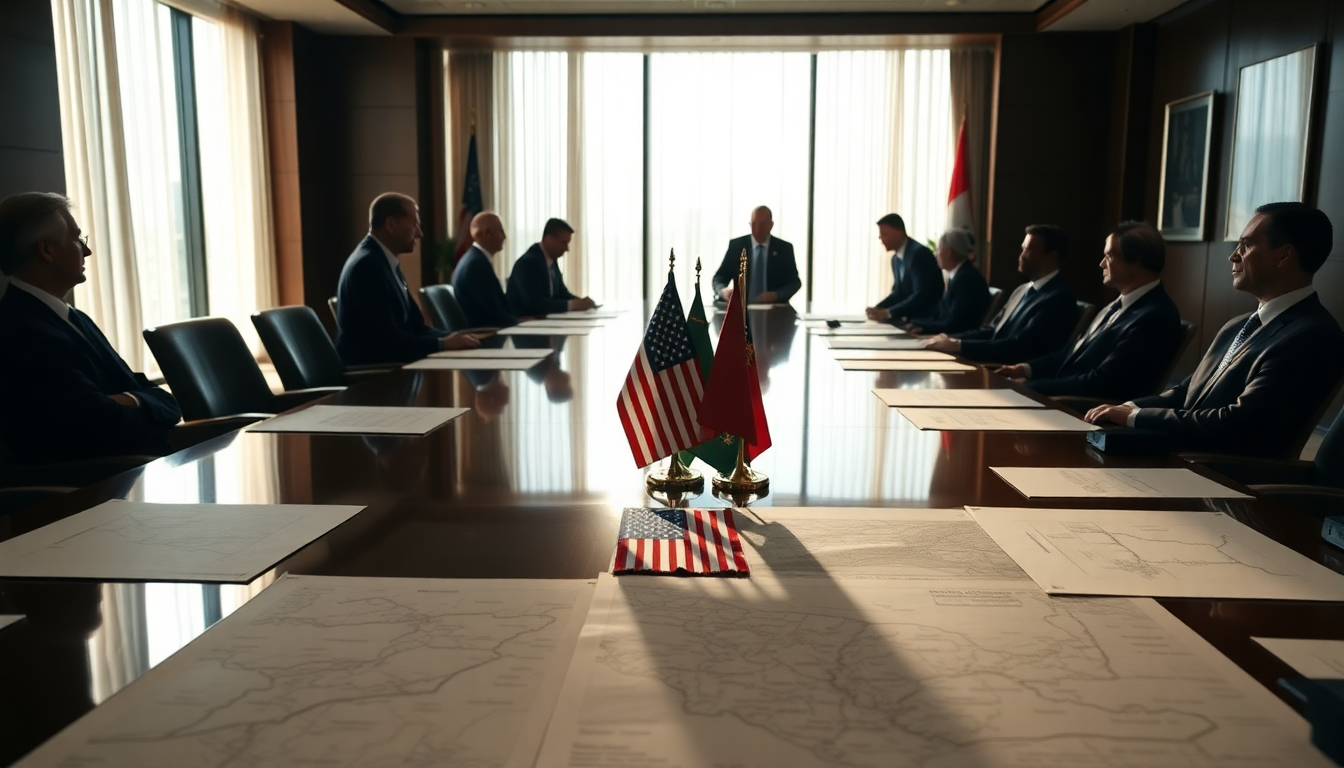Table of Contents
Recent developments in the Israel-Lebanon conflict present a tough challenge for US diplomat Thomas Barrack as he tries to promote a peace initiative centered on disarmament. The situation is complicated, especially after Hezbollah’s leader, Naim Qassem, firmly rejected the disarmament proposal from the United States that was directed at Lebanon’s leadership.
His comments highlight not just the entrenched positions in the region but also the significant hurdles international mediators face in navigating these sensitive dynamics.
Hezbollah’s Stance on Disarmament
In a recent video, Naim Qassem made it abundantly clear that Hezbollah has no intention of giving in to pressures for disarmament.
He claimed that any move to disarm would only serve to embolden the Israeli military. His statement, “We will not surrender or give up to Israel,” underscores Hezbollah’s determination to maintain its armed status as a form of resistance against what they perceive as Israeli aggression.
This sentiment resonates strongly within the leadership of Hezbollah, creating a significant obstacle for Barrack’s peace efforts.
Qassem’s remarks are particularly relevant given the ongoing tensions between Israel and Hezbollah, which have intensified in recent years. The United States has been pushing for a state monopoly on weapons in Lebanon, framing it as a pathway to stability.
However, Hezbollah’s firm stance reveals just how complex it is to enforce such measures in a landscape marked by historical grievances and deep-rooted distrust.
Moreover, Qassem’s insistence that Lebanon faces an existential threat shifts the focus away from disarmament and onto national security.
He advocates for prioritizing a national defense strategy over disarmament discussions, signaling that Hezbollah sees itself as a crucial defense against Israel’s territorial ambitions.
Reactions from Lebanese Leadership
Following Qassem’s statements, Lebanese leaders, including Prime Minister Nawaf Salam, have sent mixed signals regarding the US proposal.
While Salam acknowledged the potential dangers of escalating tensions with Israel, he also suggested that the US initiative could pave the way for Israel’s withdrawal from Lebanon. This duality reflects the precarious balance that Lebanese officials must maintain between meeting international demands and addressing domestic sentiments.
Lebanon’s leaders are navigating a tricky path. Their commitment to a state monopoly on arms signals a desire for greater sovereignty and control over national security, but this must be balanced against Hezbollah’s historical role in the nation’s defense, especially during the liberation of South Lebanon from Israeli forces in 2000.
As Lebanese authorities also grapple with the implications of the ceasefire established last November—which requires compliance from both sides—the question of adherence remains fraught with challenges. The ceasefire has often been violated, further escalating tensions and complicating the diplomatic landscape.
Outlook for Future Negotiations
The road ahead for US-led negotiations is fraught with challenges, as both Hezbollah and Israeli authorities maintain entrenched positions. Barrack’s earlier optimism about a “go-forward plan” contrasts sharply with the realities on the ground, where mutual distrust and historical grievances continue to shape interactions.
Hezbollah’s recent military activities and Israel’s strategic maneuvers in Lebanon create an atmosphere of uncertainty. Despite claims that Hezbollah has been weakened since the last conflict—facing losses among its leadership and military capabilities—Qassem remains firm in advocating for a strong defense posture. This indicates a complex interplay between military readiness and political negotiations.
As the geopolitical landscape shifts, it’s crucial for diplomats to engage with the multifaceted narratives at play. Understanding the historical context, regional dynamics, and the national aspirations of all parties involved will be essential for any meaningful resolution. The path to peace relies not only on immediate disarmament discussions but also on addressing broader issues of sovereignty, security, and mutual respect among the nations in this volatile region.





